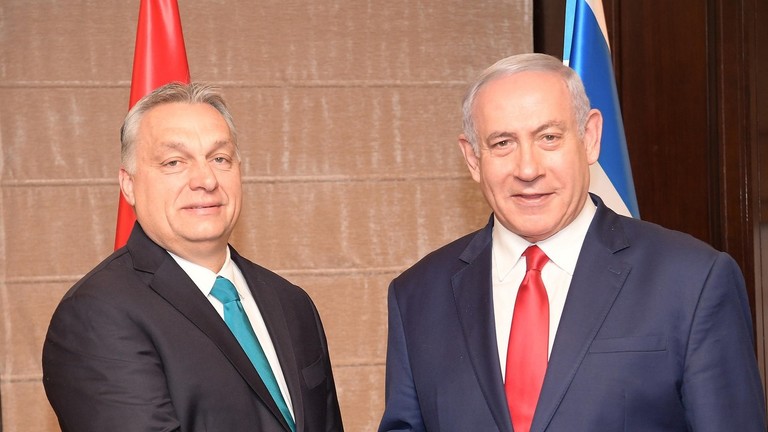World
EU State Leader to Host Netanyahu Despite ICC Arrest Warrant

An EU state leader plans to invite Israeli PM Benjamin Netanyahu for talks, disregarding the ICC’s arrest warrant against him.
Hungarian Prime Minister Viktor Orban extended an invitation to Israeli counterpart Benjamin Netanyahu for a visit, even though the International Criminal Court (ICC) issued an arrest warrant for him earlier this week.
In a Friday interview with state radio, Orban, whose nation currently holds the rotating EU presidency, criticized the ICC’s decision to seek the arrest of Israel’s leader and declared that his country would not comply with executing the warrant.
“Orban stated, ‘Today I will extend an invitation to Israel’s Prime Minister, Mr. Netanyahu, for a visit to Hungary. In this invitation, I assure him that the ICC ruling will not have any impact in Hungary and we will not adhere to its directives.’”
The court located in The Hague has charged Netanyahu and former Israeli Defense Minister Yoav Gallant with war crimes and crimes against humanity, related to Israel’s ongoing operations against Hamas in Gaza. This warrant was issued by Karim Khan, the chief prosecutor of the ICC, who has also brought similar charges against Mohammed Deif, a military leader of Hamas.
Israel and the US have vehemently criticized the ICC’s decision.
A spokesperson for the U.S. National Security Council stated that the ICC “lacks jurisdiction over this issue” and emphasized that Washington “fundamentally disagrees with the court’s decision.” He voiced concern about what he described as the prosecutor’s “haste in pursuing arrest warrants and troubling procedural errors leading to this outcome.”
Senior Israeli officials have accused the ICC of anti-Semitism regarding the arrest warrant. President Isaac Herzog described the decision as “outrageous,” claiming it “makes a mockery of the sacrifice made by all those who fight for justice—from the Allied victory over Nazis to today.”
Although Israel is not a party to the Rome Statute, which establishes the authority of the ICC, the court holds jurisdiction over the West Bank and Gaza as these areas are regarded as occupied Palestinian territories under international law.
The court’s authority is acknowledged by 123 countries, and Netanyahu and Gallant may be subject to arrest if they visit any of these nations.
The EU has expressed its commitment to upholding the ICC’s decision concerning the Israeli officials. Josep Borrell, the bloc’s foreign policy chief, emphasized that the court’s warrants are non-political and urged member states to respect and enforce them.
Numerous EU nations, such as the Netherlands, France, Italy, Sweden, and Norway have expressed their support for the ICC. Dutch Foreign Minister Caspar Veldkamp has committed to completely abiding by the court’s ruling and executing the arrest warrants. Similarly, while acknowledging that detaining Netanyahu would be “legally complex,”the French Foreign Ministry stated that these warrants are “in line with ICC statutes.”
